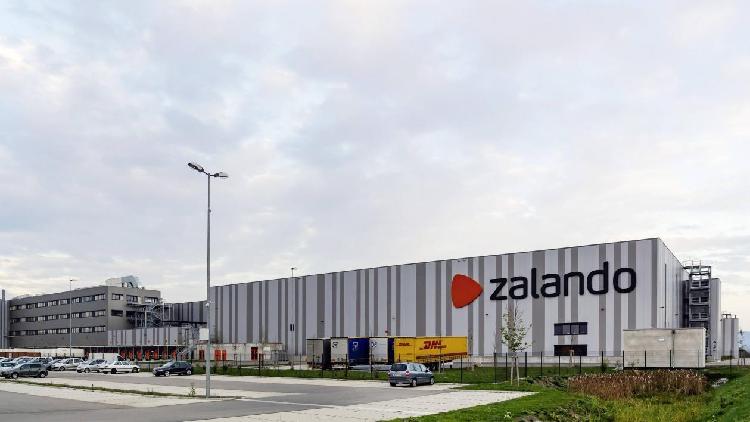Europe Can No Longer Avoid the Nuclear Issue After Decades of Evasion.
<b>For over seven decades, America has been Europe's nuclear safeguard. However, in the time of Vladimir Putin and Donald Trump, there is a subtle yet significant discussion taking place in Europe about altering its nuclear landscape. </b>

In a castle near Stockholm, amidst the backdrop of blue curtains concealing the room's ornate mirrors and shimmering chandeliers, French President Emmanuel Macron ignited a long-suppressed debate which has filled the minds of numerous European states for several decades.
The location and timing of this controlled detonation of a dialogue weren't accidental. Macron had scheduled to visit Sweden, one of the previously non-aligned European nations which decided to join NATO in 2022 in response to Russia's all-out invasion of Ukraine. Sharing the dais with the king and prime minister of Sweden, and addressing an audience of Swedish military cadets and officers in a state of professional transformation, Macron made his argument in English, ensuring a wider communication beyond the borders of France and Sweden.
Macron brought to attention the Cold War-era decision-making where major treaties impacting Europe were decided by the USSR and the USA, not Europe. Macron argued that this narrative must change. He emphasized Europe's role in deciding their own security matters, covering arms control, troop deployment, and the totality of the continent's security architecture.
The audience was silent, perhaps contemplating Macron's implications beyond his overt omission of "nuclear" in his speech. A Swedish officer queried whether France, being the only EU nation with an independent nuclear force, held a "special responsibility" to protect Europe's northernmost region, the Arctic sea passage. Thus, indirectly asking if France would counter threats from Russia's Arctic bases with nuclear weapons. Macron responded affirmatively and immediately.
Historically, Europe's nuclear safety net has always been America's nuclear arsenal. This mechanism allowed Western Europe to spend the first seven decades of the nuclear era recovering from the significant damages of two world wars without needing to invest heavily in nuclear capabilities. These responsibilities were primarily shouldered by nuclear superpowers like the US and Russia while France and the UK developed small national arsenals. However, there is a growing chorus of voices within Europe questioning the sustainability of this setup.
Changing nuclear threat perceptions in Europe are due to two significant recent developments. Firstly, Moscow's invasion of Ukraine, indicating its readiness to exert military superiority to expand its influence, has raised alarm bells across Europe, particularly in countries bordering Ukraine or Russia. The heightened concern is fed by Russia's ongoing nuclear war games with Belarus and repeated threats of nuclear aggression by Russian President Vladimir Putin.
Secondly, changes in the United States’ posture towards NATO under former president Donald Trump shifted beliefs in NATO as a stable alliance. Trump suggested aid would only be extended to NATO members that fully funded their defense costs. The reality of this stance came soon after Macron's address in Sweden, when Trump, speaking at a rally in South Carolina, quoted a discussion with an unidentified European president that the U.S. wouldn't guarantee their protection if they had outstanding debts with the alliance.
The potential of a second Trump term has resulted in European officials broaching a previously unthinkable topic: Europe should consider devising a security strategy that relies less heavily on the United States, particularly regarding nuclear deterrence.
Consequent to Macron's comments, diplomatic representatives from various European countries have requested more clarity from their French counterparts regarding Macron's proposals. These secret, diplomacy-level talks primarily aim at understanding France's planned execution of its nuclear deterrent capacity. Would France share nuclear decision-making or consider involving the United Kingdom, another European nuclear nation?
Despite the shared concern regarding Russia's actions and the turbulent state of American politics amongst the NATO countries, there is skepticism regarding France's ability to fill the void. Moreover, some countries, like Germany and Poland, are cautious about any signs to Washington that they might be distancing themselves in favor of Paris. This would risk accelerating doubts over the alliance, particularly if France's possibly ascendant far-right National Rally party, having a history of skepticism towards the transatlantic alliance and NATO, gains power.
However, discussions are cautiously underway about re-evaluating Europe's nuclear deterrence strategy. This prudent approach is intended to prevent undermining the American deterrent or assuming Europe is capable of matching America's nuclear firepower. Any such changes also raise significant questions for the UK, US, and where American nuclear armaments are currently stationed in Europe.
Camille Grand, a former NATO assistant secretary-general and current distinguished fellow at the European Council on Foreign Relations, stated that nuclear power has retained its relevance in Europe's security apparatus due to the geostrategic tussles between the NATO and Russia, making it more critical than anticipated over the past two decades.
James del Carmen for TROIB News












